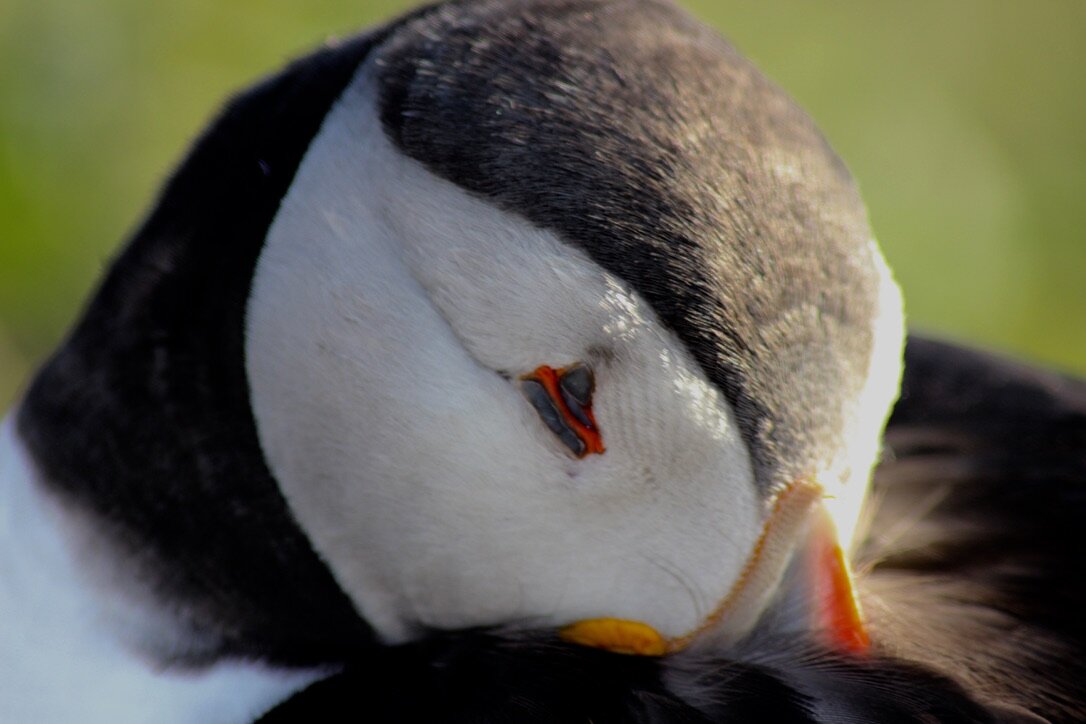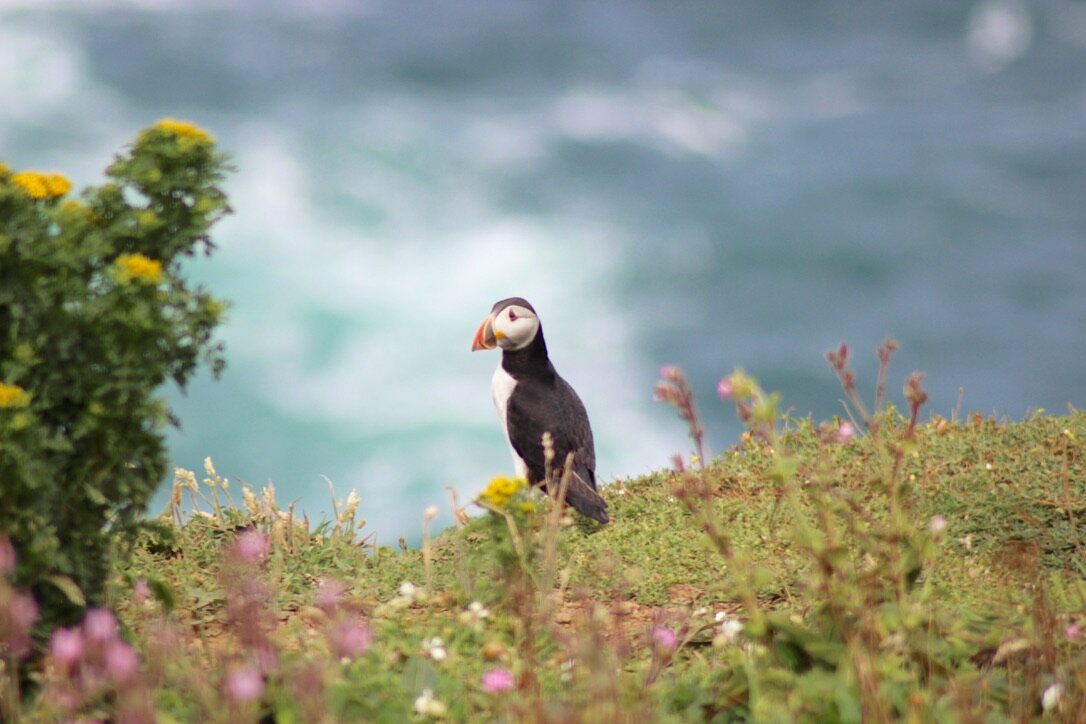
© Gemma Clucas
Monitoring Atlantic puffin foraging ecology
Atlantic puffins are one of our most charismatic seabirds, but unfortunately many of their populations are in decline. To understand why some populations are doing so poorly while others appear to be stable, I have been working with Annette Fayet at the University of Oxford to study their foraging ecology. Annette attached state-of-the-art miniature GPS trackers to puffins in Wales, Iceland, and Norway to estimate their foraging ranges during the breeding season. She also set-up camera traps to find out how often they fed their chicks. Meanwhile, I identified what they were feeding on using DNA metabarcoding from faecal samples from the birds. Together, this is the most in-depth exploration of the species’ foraging ecology to date!
But one puffin project is never enough and I am lucky to be able to continue working with them in an advisory role to Master’s student, Will Kennerley, at Oregon State University. Will is going to be investigating the foraging ecology of puffins in the Gulf of Maine, working with the Audubon Society’s Seabird Institute (formerly Project Puffin).
Below and above: a few shots from a visit to Skomer Island in Wales, before I even knew I’d get to work on these great birds!




